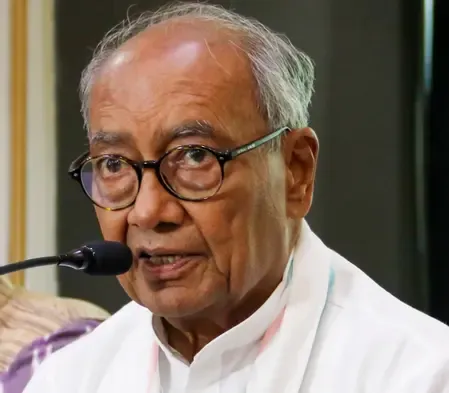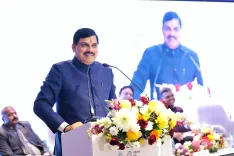Should Indore's Sanitation Workers Receive a Pay Increase?

Synopsis
Key Takeaways
- Sanitation workers play a vital role in maintaining Indore's cleanliness.
- Their current wages are insufficient for basic needs.
- Digvijaya Singh advocates for their rights and demands increased pay and job security.
- Indore's success is attributed to effective waste management and community involvement.
- Innovative initiatives promote sustainable practices and discourage littering.
Indore, July 19 (NationPress) Following its achievement of being the cleanest city in India for the eighth consecutive time, senior Congress politician and former Chief Minister of Madhya Pradesh, Digvijaya Singh, emphasized that the city's sanitation workers, who are the true champions behind this success, are struggling to make ends meet with their meager monthly salaries.
He pointed out that these sanitation workers, who play a crucial role in keeping Indore clean and have contributed to its recognition for eight years, receive neither the respect nor the job security they deserve. Their monthly earnings barely cover the educational expenses for their children.
“These dedicated workers rise at 4 a.m. daily, regardless of weather conditions, to ensure Indore remains pristine. Yet tragically, their salary is merely Rs 10,500, which falls short of supporting their children's higher secondary education,” Singh stated on social media platform X.
Singh put forth three fundamental demands on behalf of Indore's sanitation workers, urging Chief Minister Mohan Yadav and State Urban Development Minister Kailash Vijayvargiya to prioritize job security and increase their wages, as they are deserving of such considerations.
“The cleanliness of Indore will hold true significance only when the lives of sanitation workers are also clean, safe, and respected. I urge the Chief Minister and the Urban Administration Minister to heed these requests,” Singh remarked.
The Congress leader asserted that Indore's ongoing triumph in cleanliness is no coincidence.
It stems from a comprehensive strategy that includes effective waste management, smart infrastructure, robust civic participation, and innovative services.
Unlike many other cities, Indore has effectively instituted a system encouraging households and businesses to segregate waste into six categories: wet, dry, plastic, e-waste, sanitary, and hazardous.
Indore has emerged as a pioneer in waste treatment, with nearly all daily waste processed and transformed into valuable resources.
A significant Gobar-Dhan plant is instrumental, handling between 550 and 692 tonnes of wet waste daily to generate bio-CNG and organic compost.
Additionally, Indore has successfully converted various areas, such as wards, markets, zoos, slums, and resident welfare associations (RWAs), into zero-waste zones.
Within these areas, practices like segregation, reuse, composting, and recycling are actively embraced.
Moreover, the Indore district administration, alongside the Municipal Corporation, has introduced impactful initiatives, particularly behavior change campaigns like Bartan Banks to reduce single-use plastics and Jhola Banks for promoting cloth bags.
The community, including citizens, students, shopkeepers, and local committees, is actively engaged in cleanliness pledges and competitions.
To combat littering, the city employs CCTV surveillance and imposes penalties.
The municipal corporation also enforces strict measures, including termination of non-compliant staff, underlining their dedication to upholding high standards.






